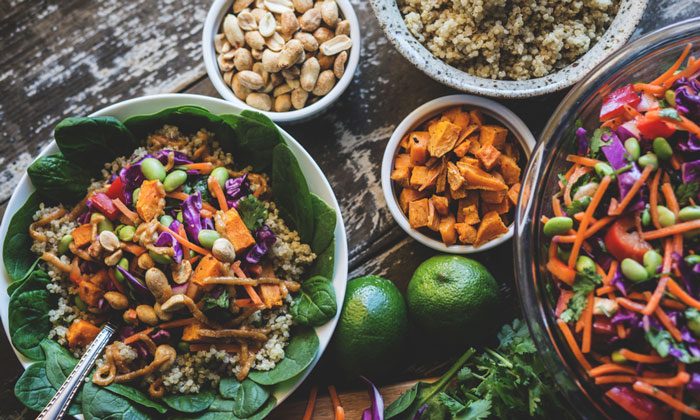Plant-based product claims up by 62 per cent in just four years
- Like
- Digg
- Del
- Tumblr
- VKontakte
- Buffer
- Love This
- Odnoklassniki
- Meneame
- Blogger
- Amazon
- Yahoo Mail
- Gmail
- AOL
- Newsvine
- HackerNews
- Evernote
- MySpace
- Mail.ru
- Viadeo
- Line
- Comments
- Yummly
- SMS
- Viber
- Telegram
- Subscribe
- Skype
- Facebook Messenger
- Kakao
- LiveJournal
- Yammer
- Edgar
- Fintel
- Mix
- Instapaper
- Copy Link
Posted: 11 July 2018 | George Smith (New Food) | No comments yet
Growing trends towards vegetarianism and veganism have made a dent in the global food market.


A STEAK BY ANY OTHER NAME: While plant-based foods gain popularity, a debate is swirling in the United States about what so-called 'clean meat' should be labelled
A report has revealed a 62 per cent surge in plant-based product claims between 2013 and 2017.
Innova Market Insights‘ study showed growth in areas such as plant proteins, active botanicals, sweeteners, herbs and seasonings, and colouring foodstuffs.
Consumer interest in health, sustainability and ethics has driven up the popularity of the plant-based label.
“The dairy alternatives market has been a particular beneficiary of this trend,” said Lu Ann Williams, Director of Innovation at Innova Market Insights. “With the growing availability and promotion of plant-based options to traditional dairy lines, specifically milk beverages, and cultured products such as yogurt, frozen desserts and ice cream.”
The dairy alternatives category was largely pioneered by and continues to be led by beverages. Global sales of dairy alternative drinks are set to reach US$16.3bn in 2018 and they accounted for over 8 per cent of global dairy launches recorded by Innova Market Insights in 2017, up from 7 per cent over 2016. Actual global launches have more than doubled over a five-year period.
Spoonable non-dairy yogurt has also seen strongly rising levels of interest, but from a smaller base, with a 48 per cent CAGR for the 2013-2017 period taking its share of dairy launches from less than 0.5 per cent in 2012 to 1.5 per cent in 2017. According to Innova Market Insights’ consumer research, one in three U.S. consumers have increased their consumption of plant-based milk/yogurt in the two years to the end of 2017.
“In the move to offer something new, we are starting to see an increasing variety of non-soy plant-based ingredients, including cereals such as rice, oats and barley,” said Ms Williams. “We also noticed an increase in nuts, such as almonds, hazelnuts, cashews, walnuts and macadamias, as well as coconut and more unusual options such as lupin, hemp and flaxseed.”
Interest in plant-based eating is clearly reflected in developments in the meat substitutes market, where global sales are set to grow to US$4.2bn by 2022. The range of ingredients used for meat substitutes includes vegetables and grains, as well as traditional sources such as soy and specialist manufactured brands such as Quorn and Valess.
Gravitation towards plant-based diets in general, along with interest in vegan, vegetarian and flexitarian lifestyles and concerns over animal welfare, have together served to increase interest and NPD has subsequently seen an 11 per cent CAGR for the 2013-2017 period. Research also indicates that four in ten U.S. consumers increased their consumption of meat substitutes/alternatives during 2017.
Related topics
Proteins & alternative proteins, Revenues, Supply chain, Sustainability, Trade & Economy









